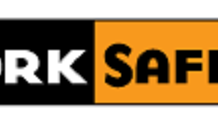As summer approaches, WorkSafeBC is reminding young workers about their rights—and employers about their responsibilities
AS large numbers of young people begin entering the workforce for summer jobs, WorkSafeBC cautions that young and new workers are vulnerable to injury at work.
In 2021, WorkSafeBC accepted 7,125 claims related to injuries from young workers. Injuries were most likely to occur in service-sector jobs (2,801 claims), followed by retail and wholesale (1,335 claims), and construction (1,258 claims). In the last five years, 16 young workers have died in workplace incidents.
“More than half of all serious injuries occur during the first six months of employment,” says Jacqueline Holmes, Manager of Prevention Field Services at WorkSafeBC. ”Injuries can result from inadequate training, orientation, and supervision, inexperience, or a reluctance to speak up, ask questions, and raise health and safety concerns.”
The right to refuse
WorkSafeBC points out that young workers must be aware of their rights in the workplace, especially the right to refuse unsafe work. All workers in B.C. have the legal right to refuse unsafe work if there is reasonable cause to believe it would create an undue hazard to their health and safety.
“It is every worker’s right to refuse unsafe work. Young workers should speak to their supervisors if they feel a task might be hazardous,” says Holmes. “Trust your gut— it’s okay to say, ‘I need more training before I am comfortable’ or ‘This doesn’t feel safe.’”
It is illegal for employers to punish or fire anyone for refusing unsafe work or reporting hazards to a supervisor.
If a young person feels an unsafe situation has not been resolved, they can contact (anonymously, if preferred) the WorkSafeBC prevention line and speak directly with a prevention officer at: 1.888.621.7233.
Employer responsibilities
Under the Workers’ Compensation Act, employers have a legal responsibility to ensure young and new workers receive appropriate training and supervision.
When employers fail to adequately train or supervise young workers, WorkSafeBC may use various enforcement tools, including orders, warning letters, stop-work orders, compliance agreements, and citations and penalties, where necessary.
Parents can play a role
Parents can also play a role in helping young workers.
“Talk to your young adult children about workplace health and safety,” says Holmes. “Visit worksafebc.com/young workers together—to access a variety of resources on workplace safety including real-life stories, videos, books, and slide shows.”
Resources
· WorkSafeBC Website: Young & new workers
· Support for employers: Training and orientation for young and new workers.












